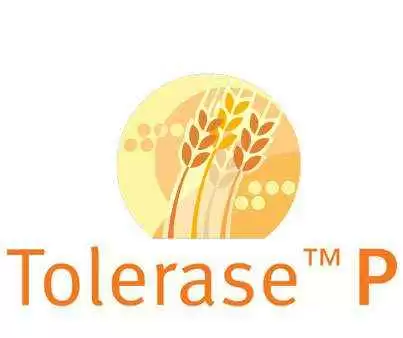
Celiac.com 09/01/2025 - People with celiac disease must follow a strict gluten-free diet to avoid triggering an immune response that can damage their small intestine. However, accidental gluten exposure still occurs, often in small amounts through cross-contamination or mislabeled foods. This has led to the popularity of over-the-counter enzyme supplements that claim to help digest gluten. This study investigates how well these digestive enzymes actually break down harmful gluten proteins when taken with a common food item—pizza—and whether they could help reduce immune responses in people with celiac disease.
The Goal of the Study
The primary goal of this research was to evaluate how effective three different commercial enzyme supplements are at breaking down gluten proteins in pizza. Researchers wanted to understand whether these supplements can reduce the amount of gluten peptides that are harmful to people with celiac disease. They used a laboratory digestion model that mimics how food moves through the stomach and intestines and then analyzed what was left behind.
Overview of Enzyme Supplements Tested
Celiac.com Sponsor (A12):
The study focused on three enzyme supplements:
- Supplement S1 and S2: These contained a mix of digestive enzymes including dipeptidyl peptidase IV, other proteases, and enzymes that break down starches.
- Supplement S3: This contained a specific enzyme called prolyl endopeptidase from Aspergillus niger (AN-PEP), which targets gluten peptides more specifically.
How the Study Was Conducted
Pizza samples were digested using a model that simulates the human digestive process. The digestion occurred in two stages: the stomach (gastric phase) and the small intestine (gastroduodenal phase). Researchers tested the breakdown of proteins at each stage and used several methods to measure the presence and activity of harmful gluten peptides. They also checked how the digested peptides affected immune cells from individuals with celiac disease.
Main Findings
1. Supplements Boost Protein Breakdown
All three supplements helped speed up protein digestion during the stomach phase, especially S1 and S2, which also contained enzymes that break down starch. These enzymes may help expose gluten proteins to other digestive enzymes, making them easier to break apart.
2. S3 (AN-PEP) Was Best at Reducing Harmful Gluten Peptides
While S1 and S2 were effective at breaking down proteins in general, S3 was better at targeting the gluten peptides that trigger immune reactions in celiac patients. Lab tests showed that S3-treated samples contained lower amounts of harmful gluten fragments compared to the control and the other two supplements.
3. No Supplement Completely Eliminated Immune Response
Despite improvements, none of the supplements were able to fully eliminate gluten's ability to activate immune cells. Even with enzyme treatment, digested pizza samples still triggered responses from gluten-sensitive T cells, especially after the stomach digestion stage. This means small amounts of immunogenic gluten peptides remained in all samples.
4. Testing Methods Matter
The study used two types of laboratory tests (R5 and G12 ELISA) to measure remaining gluten. These tests sometimes gave different results, showing that no single test gives the full picture. Additionally, immune cell testing provided more direct insight into whether the digested food could still trigger a harmful immune response.
What This Means for People with Celiac Disease
This study highlights both the promise and the limitations of using digestive enzyme supplements as a safety net for those with celiac disease. While some enzyme blends—especially those with prolyl endopeptidase—can reduce the amount of harmful gluten peptides, they cannot completely neutralize them, even in small servings of food like pizza. Therefore, relying on these supplements to protect against accidental gluten exposure may offer some benefits but cannot replace a strict gluten-free diet.
Why This Study Is Important
This research provides a realistic look at how digestive enzyme supplements behave in complex foods rather than in isolated lab conditions. It also shows the importance of using multiple methods to assess gluten breakdown and immunogenicity. For patients with celiac disease, this kind of study offers valuable information about what enzyme supplements can and cannot do. It can also guide future research toward developing more effective therapies for managing accidental gluten exposure.
Conclusion
Enzyme supplements can help break down gluten to some extent, especially when they contain specialized enzymes like prolyl endopeptidase. However, they are not foolproof and should not be seen as a license to eat gluten-containing foods. People with celiac disease should continue to avoid gluten strictly and consult with healthcare providers before using these supplements. Continued research is essential to develop enzyme therapies that might one day offer better protection or treatment options.
Read more at: sciencedirect.com










Recommended Comments
Create an account or sign in to comment
You need to be a member in order to leave a comment
Create an account
Sign up for a new account in our community. It's easy!
Register a new accountSign in
Already have an account? Sign in here.
Sign In Now